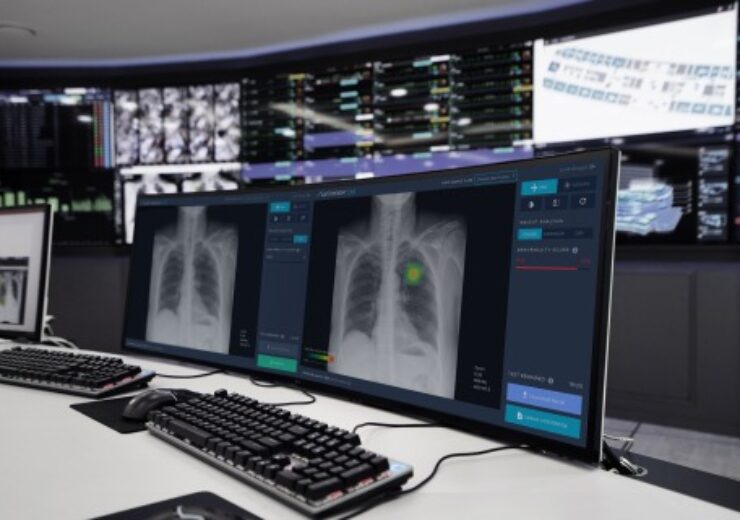NIPA supports the consortium comprising SMEs and a large company to encourage the export of AI-based medical services

Lunit INSIGHT CXR, an AI-based chest X-ray analysing solution. (Credit: Business Wire.)
South Korea-based National IT Industry Promotion Agency (NIPA), together with small and medium-sized companies and start-ups, is endorsing a medical digitisation service project.
The project titled ‘SMEs and Large Enterprise Partnership for DNA: Data, Network, AI’ aims to support domestic companies with advanced digital convergence technologies.
It combines artificial intelligence (AI) and other new information technologies while accelerating the digital transformation (DX) of global medical systems.
The SaaS-based global AI medical image analysis solution project is said to be attracting attention among the others.
Korea-based IT service company LG CNS, medical AI startups Vuno and Lunit, and IT system builder Barun Infotech have formed a consortium for the project.
Lunit contributes INSIGHT CXR, its AI-based chest X-ray analysis solution that detects 10 major chest diseases within a few seconds.
The device is designed to read the X-ray images with an accuracy of more than 97 to 99% within a few seconds.
Vuno offers its AI-based screening solution Med-Fundus AI, which provides diagnostic support on common ocular diseases, by detecting 12 retinal findings with more than 95% accuracy.
Barun Infotech will be responsible for localising AI-based medical service portal and control platform as per medical systems in respective regions.
The consortium, led by LG CNS, previously offered similar medical services in a market outside South Korea.
It has offered AI-based medical services at The Medical City, a Manila-based general hospital, in the chest and breast X-ray and fundus segments.
Also, the consortium has secured approval from the Filipino regulatory authorities for its services.
The AI-based medical image analysis service from the group is said to read various diseases, including cancers and adult diseases, with an accuracy of over 90%.
The consortium intends to further expand the service, to make it an alternative for improving medical standards in countries with insufficient medical infrastructures.
NIPA said that in order to pre-emptively respond to the fourth industrial revolution, it is promoting the ‘SMEs and Large Enterprise Partnership for DNA: Data, Network, AI’ project.
